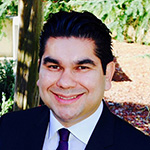
Dr. Erik Cabral, MD, FACMS
Physician
Dermatology
Specialty
Mohs Surgery
Medical Expertise of Dr. Erik Cabral, MD, FACMS
Diagnosis and treatment of skin conditions, including acne, eczema, rosacea, psoriasis and skin cancer.
About Dr. Erik Cabral, MD, FACMS
Dr. Cabral went to Stanford for college, medical school, & residency. He has Bay Area roots since he was born in San José, CA. Dr. Cabral completed his Mohs fellowship with Dr. Richard G. Bennett at UCLA.
Dr. Cabral has treated thousands of patients over the past 10 years of practice in the Bay Area. Dr. Cabral specializes in skin cancer prevention and treatment, including micrographic surgery and reconstruction. He has published and presented over 40 scientific articles on melanoma and skin cancer. Dr. Cabral is a proud member of The Olympic Club and is an avid golfer and tennis player.
Procedures & Services
Patient Education Resources
Can I switch the biologic medications I’m using to treat my psoriasis?
Yes, you can switch biologic medications for psoriasis if one is not working effectively. Biologic medications are a class of drugs that target specific parts of the immune system that are involved in...
Yes, you can switch biologic medications for psoriasis if one is not working effectively. Biologic medications are a class of drugs that target specific parts of the immune system that are involved in...
How do biologics work to treat my psoriasis?
Biologics are a class of medications that are used to treat moderate to severe psoriasis. They are typically used when other treatments, such as topical creams and light therapy, have not been effecti...
Biologics are a class of medications that are used to treat moderate to severe psoriasis. They are typically used when other treatments, such as topical creams and light therapy, have not been effecti...
What are some treatments to get rid of warts?
The best treatment for warts will depend on the type and location of the wart, as well as the patient's overall health and preferences. Some common treatment options for warts include:Salicylic ac...
The best treatment for warts will depend on the type and location of the wart, as well as the patient's overall health and preferences. Some common treatment options for warts include:Salicylic ac...
What can reduce the appearance of my acne scars?
Acne scars can be treated with a variety of methods, including:Topical treatments: Topical creams and gels containing ingredients such as retinoids, hydroquinone, and vitamin C can help to reduce the ...
Acne scars can be treated with a variety of methods, including:Topical treatments: Topical creams and gels containing ingredients such as retinoids, hydroquinone, and vitamin C can help to reduce the ...
What is the treatment for severe atopic dermatitis?
The treatment for severe atopic dermatitis will depend on the individual case, but it may include a combination of the following:Topical corticosteroids: Topical corticosteroids can be used to reduce ...
The treatment for severe atopic dermatitis will depend on the individual case, but it may include a combination of the following:Topical corticosteroids: Topical corticosteroids can be used to reduce ...